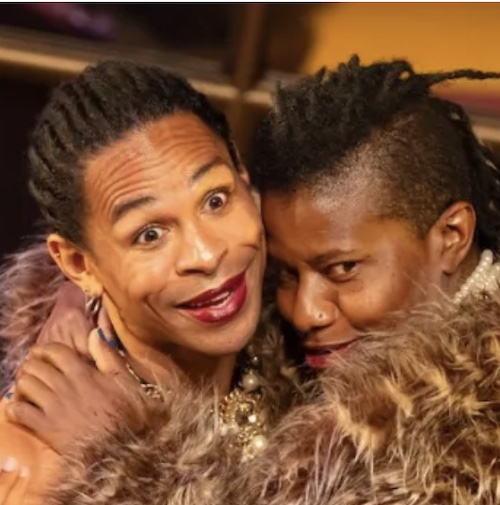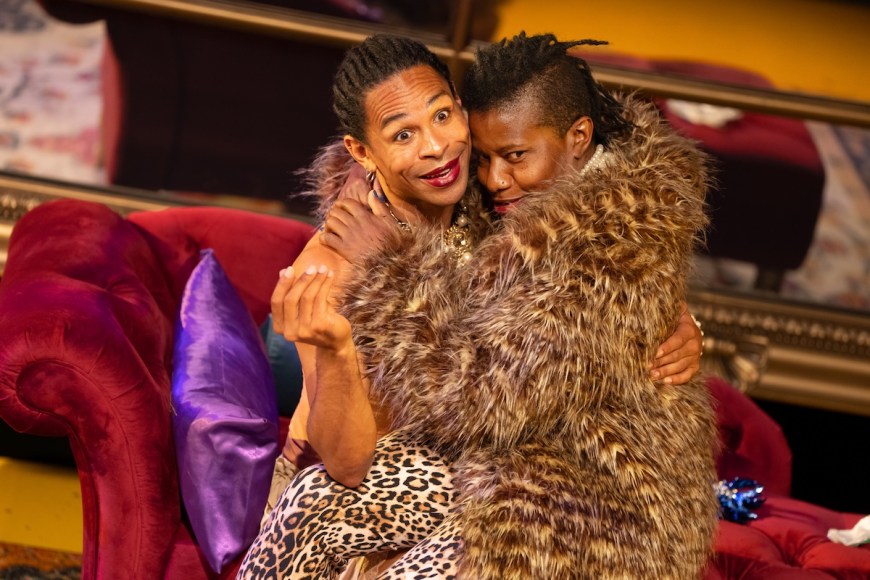
When a stranger asks you “so, what do you do?” they’re not asking for your hobbies or habits, your daily activities or nightly dreams. They’re asking what your job is.
Jenn Kidwell puts this more harshly: “It’s shorthand for how much do you make and how important are you while you make it, so I know how to perform my role as it relates to you.”
Her comment is a rare moment of coherent insight in Kidwell’s ninety minutes of aggressive theatricality, whose purpose is to “debunk the alluring tale of American economic might” — or so we were promised. I didn’t actually decipher any systematic debunking amid the effusion and confusion, effulgence and indulgence in “we come to collect: a flirtation, with capitalism.”
That title (all lower case, with that counterintuitively-inserted comma ) struck me as designed to imply some deep meaning that we have to dig out. But what I most appreciated about the show was something right on the surface — the full integration of American Sign Language, as performed by masterful ASL interpreter Brandon Kazen-Maddox, who is a theater artist in his own right. On the stage of the Flea, he functions not just as an interpreter, but as a character — Kidwell’s companion, dance partner and co-conspirator.
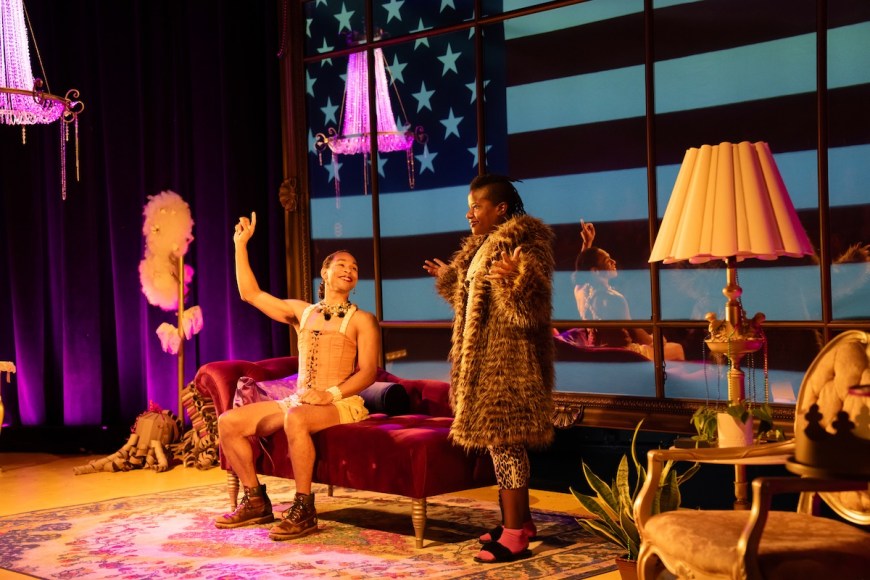
The key to understanding Kidwell’s reasons for the show’s craziness — both the why and the what of it – may rest in her bit about Mardi Gras. The festival, she tells us, is a “fever dream” permitted by the “powers that be” so that folks can feel free once a year to dress or act or be however they wish (“saints get to be sinners and paupers get to be kings and politicians are honest”), with the understanding that there is no such freedom again until Mardi Gras the following year.
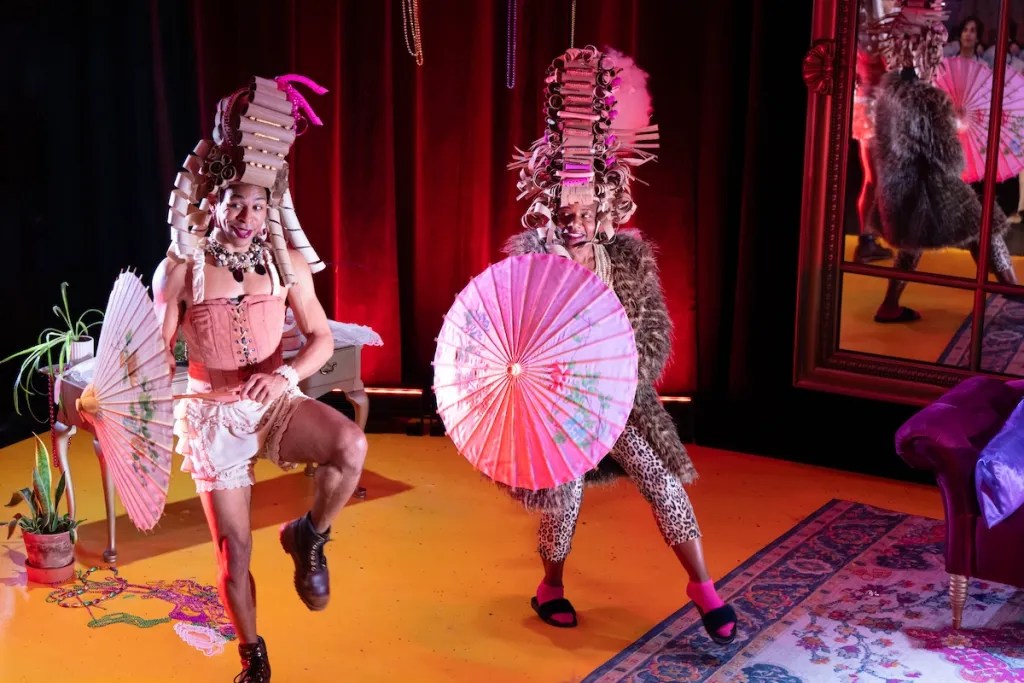
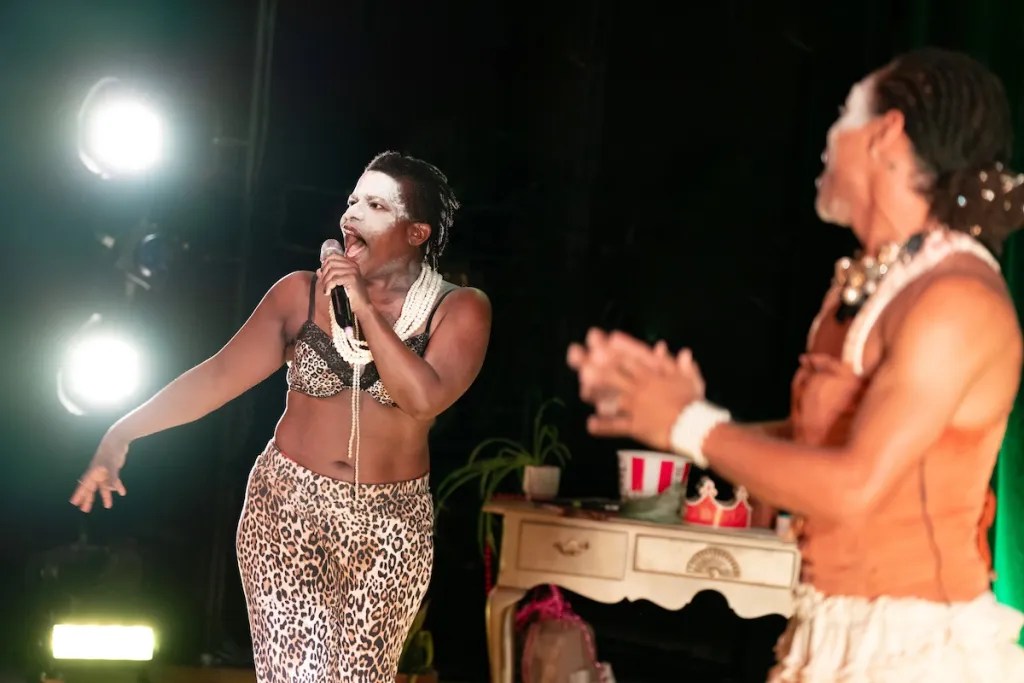
So the idea of a Mardi Gras fever dreams surely explains the Mardi Gras beads the two of them throw around, and the dressing up in clownish makeup and outlandish costumes, and their bawdy behavior – he grabs his crotch, and digs valuables out of her butt; she bares her breasts — and maybe the set, which suggests a once-elegant New Orleans parlor conducive to acts of debauchery. Maybe it’s also why they engage with individual audience members in not always intellectual or comfortable ways (like rubbing their hair, or snuggling up too close), and maybe why there is a stream of piped-in pop songs (each identified on the screen: Sade’s “The Sweetest Gift” Susan Boyle singing “I Dreamed a Dream” and Kendrick Lamar’s DNA and the theme from Jeopardy.) I suppose the connection of all this with capitalism is that our obsession with money denies us such freedom to have fun most of the year. I’ll confess I wasn’t having as much fun, or finding as much funny, as the two performers seemed to.
Kidwell does supply plenty of commentary on the subject of money, albeit much of it indirect. These are meant to be reflective, literally; for at least the first twenty minutes, she has her back to us, staring at the backdrop, which is as glossy as a mirror, enabling her to see us, and us to see her. (It will later project relevant cartoons and the American flag.) How come, she says at one point, “the only way to ‘earn my rest’ is by ‘earning a living.’” At another point, she yells “Fuck work” repeatedly (and signs it too.) But given the brevity, frequency, and wide-ranging nature of that commentary, and the noise that surrounded it, it all seemed more like rants than anything I could take home with me.
Near the end of the show, Kidwell and Kazen-Maddox say and sign: “it’s time to do what we came here to do.” A big QR code is projected on the screen, which leads to her Venmo — a way to give her money — and another riff on money, including what she calls a devil nugget: “i neither trust nor believe we’ve worked for your money any less than you have.” Then she adds (because, to be fair, she is surely being cheeky, not greedy): “What i believe is entirely reliant on your participation. Doesn’t this just scream seduction?” And suddenly, the title of their show became clear. It was no deep metaphor. It was literal – even the comma.
we come to collect: a flirtation, with capitalism
The Flea through September 27
Running time: 90 minutes, no intermission
Tickets: $20 – $48
Co-written, co-directed, and co-performed by Jenn Kidwell
Written with the artistic collective the blackening, directed with Adam Lazarus, performed with Brandon Kazen-Maddox
Scenic design by Jian Jung, lighting design by Evan Spigelman, sound design by Jordan McCree, video design by Matthew Deinhart, and props & objects design by Petra Floyd
Photos by Julieta Cervantes.
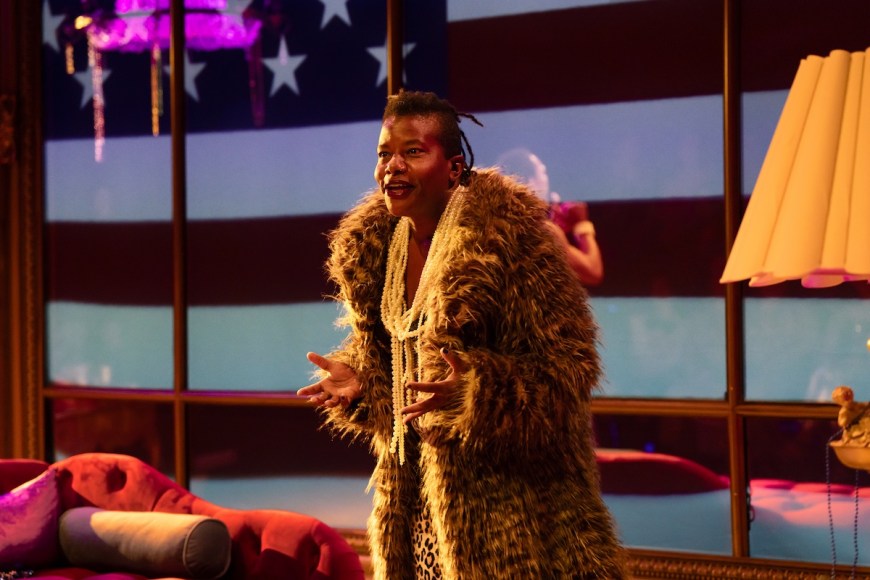
Like this:
Like Loading…
Related
